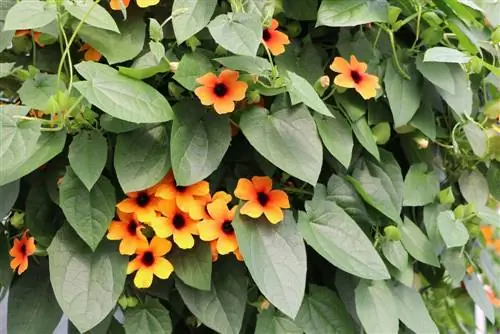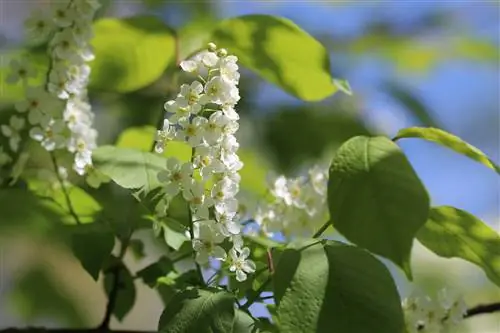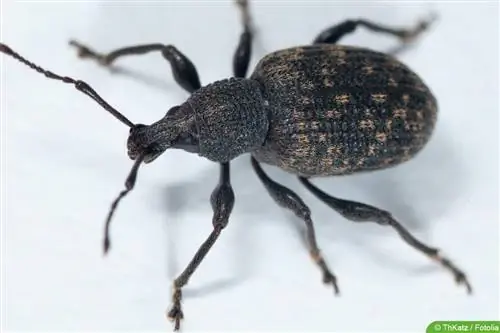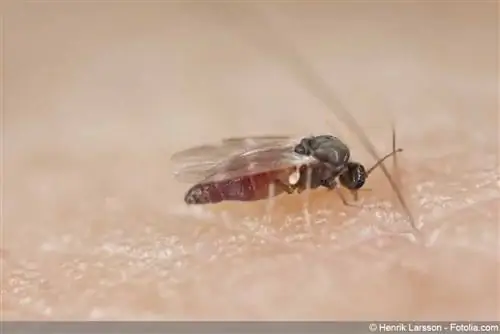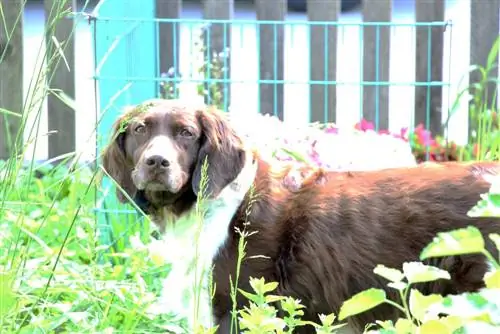- Author admin caroline@plants-knowledge.com.
- Public 2023-12-17 03:39.
- Last modified 2025-01-24 12:45.
The black-eyed Susanne is a popular climbing plant. It enchants with its dense, lush green leaves and numerous orange flowers. Can we admire its beauty without hesitation or is it possibly poisonous?
No trace of toxic substances
Both roots, stems, leaves and flowers of the black-eyed Susan, scientifically Thunbergia alata, are completely free of any toxins at any point in their development. This climbing plant is therefore not considered poisonous to humans. After direct contact and even after consuming large quantities, no unpleasant side effects are to be expected. Their cultivation certainly does not pose the risk of fatal poisoning.
Family-friendly plant
The fact that the black-eyed Susan is non-poisonous should be particularly pleasing to families with small children. Adults are aware of possible toxins and can admire a beautiful plant without exposing themselves to danger. Small children, on the other hand, are naive and full of curiosity. Since Thunbergia alata is a showy climbing plant, it is sure to have a lot of appeal. Leaves and flowers can quickly end up in a child's hand and then in their mouth. To ensure that such actions have no consequences, we must rely on non-poisonous plants such as the black-eyed Susan. Because with small children it is hardly possible to provide information or they do not follow our instructions.
Safe for pets too
We know that different living beings can react differently to the same ingredient. So if a plant is not poisonous to us, it may well be to certain animal species. That's why we have to separately investigate the question of whether the black-eyed Susanne is just as safe for our animals at home. This is especially true for pet species that can move freely in the garden or on the balcony and eat the climbing plant in an unnoticed moment. Fortunately, the all-clear can also be given here. Thunbergia alata is, among other things, non-toxic for:
- Cats
- Dogs
- Rabbit
- Hamster
- Birds
Leaves and flowers are edible
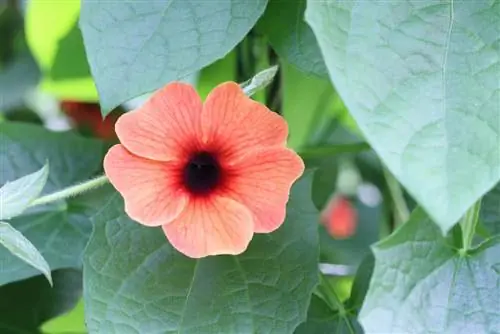
Not only does Thunbergia alata not produce any toxins, there is further good news to be announced: the approximately four centimeter large flowers, which are colored orange, yellow or white depending on the variety, as well as the green leaves of this plant are edible! The spicy aroma is reminiscent of cress and so this climbing plant has a similar use in the kitchen:
- cut up leaves as a bread topping
- Leaves and flowers as a salad ingredient for wild herb and flower salads
- Flowers as decorative elements for fruit and vegetable salads
- colorful decoration of cocktails
Tip:
Herbivorous animals also appreciate this plant, which is why they are welcome to be served one or two leaves or flowers.
Fertilize correctly and avoid chemicals
For the enjoyment of the leaves and flowers to be enjoyable, it is not enough to know that the climbing plant is non-toxic. The nutrients with which it is “fed” are of crucial importance. If it only serves as an ornamental plant, it doesn't matter what fertilizer it gets. To use it as an edible plant, please note the following points:
- avoid artificial fertilizer altogether
- these are harmful to our he alth in large quantities
- they also change the taste unfavorably
- use an organic fertilizer instead
- for example mature compost
Tip:
Experience has shown that leaves and flowers picked dry in the morning have the best aroma. However, harvest in moderation so that the plant still has enough strength to continue growing splendidly.
Other ways to use it
Many plants are available commercially, some of which are extremely toxic to people and their pets. Thunbergia alata, which is completely harmless in this regard, is a good alternative. It can be used wherever we encounter plants up close and can therefore come into contact with their toxins more easily.
It is especially ideal as:
- Shade for sandboxes
- Climbing plant for cat nets
- Privacy protection for balconies

